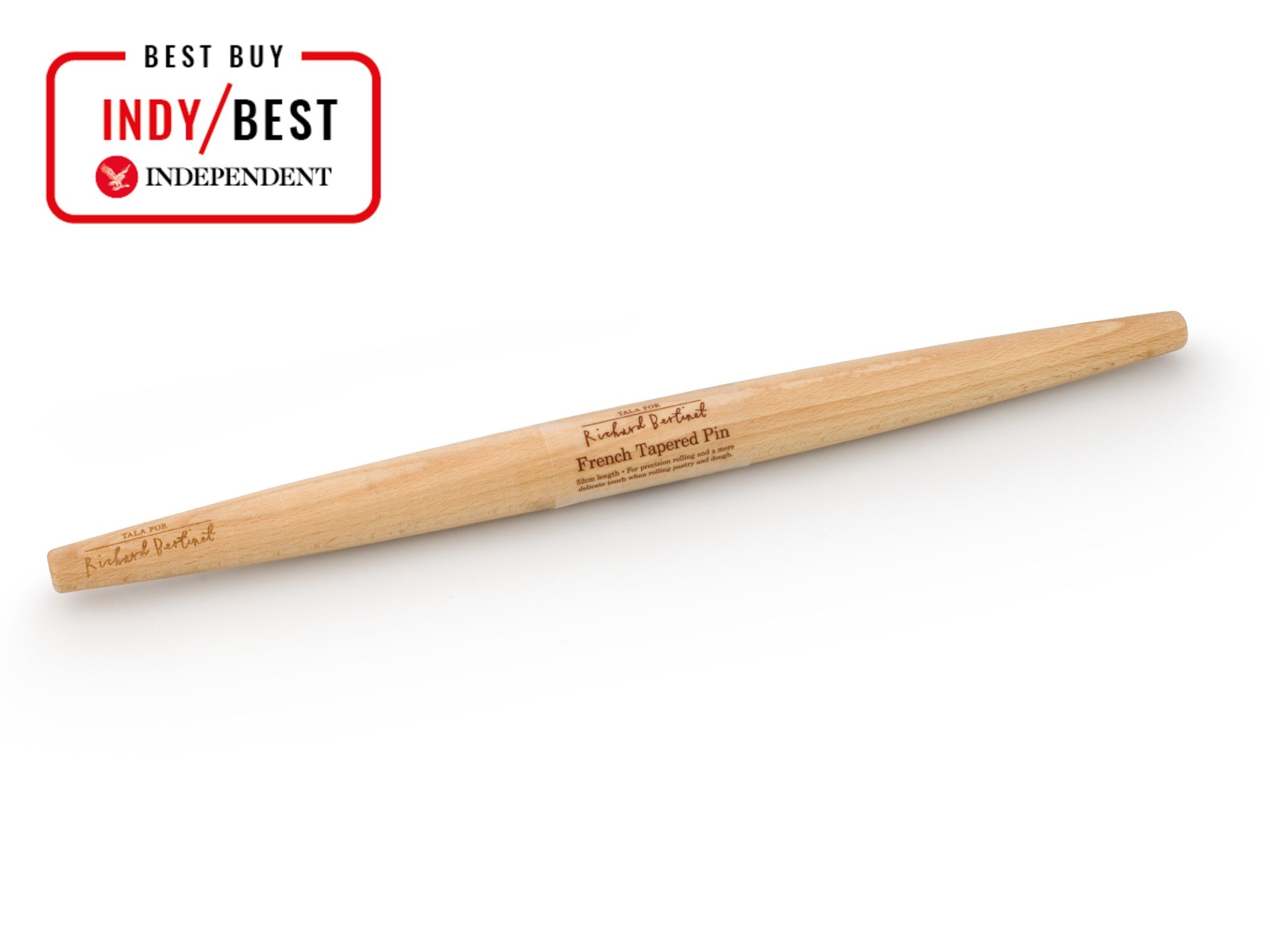
The Independent's journalism is supported by our readers. When you purchase through links on our site, we may earn commission. Why trust us?
8 best rolling pins perfect for bread, pastry and icing
Whether you’re a baking connoisseur or new to the game, no chef should be without this humble tool
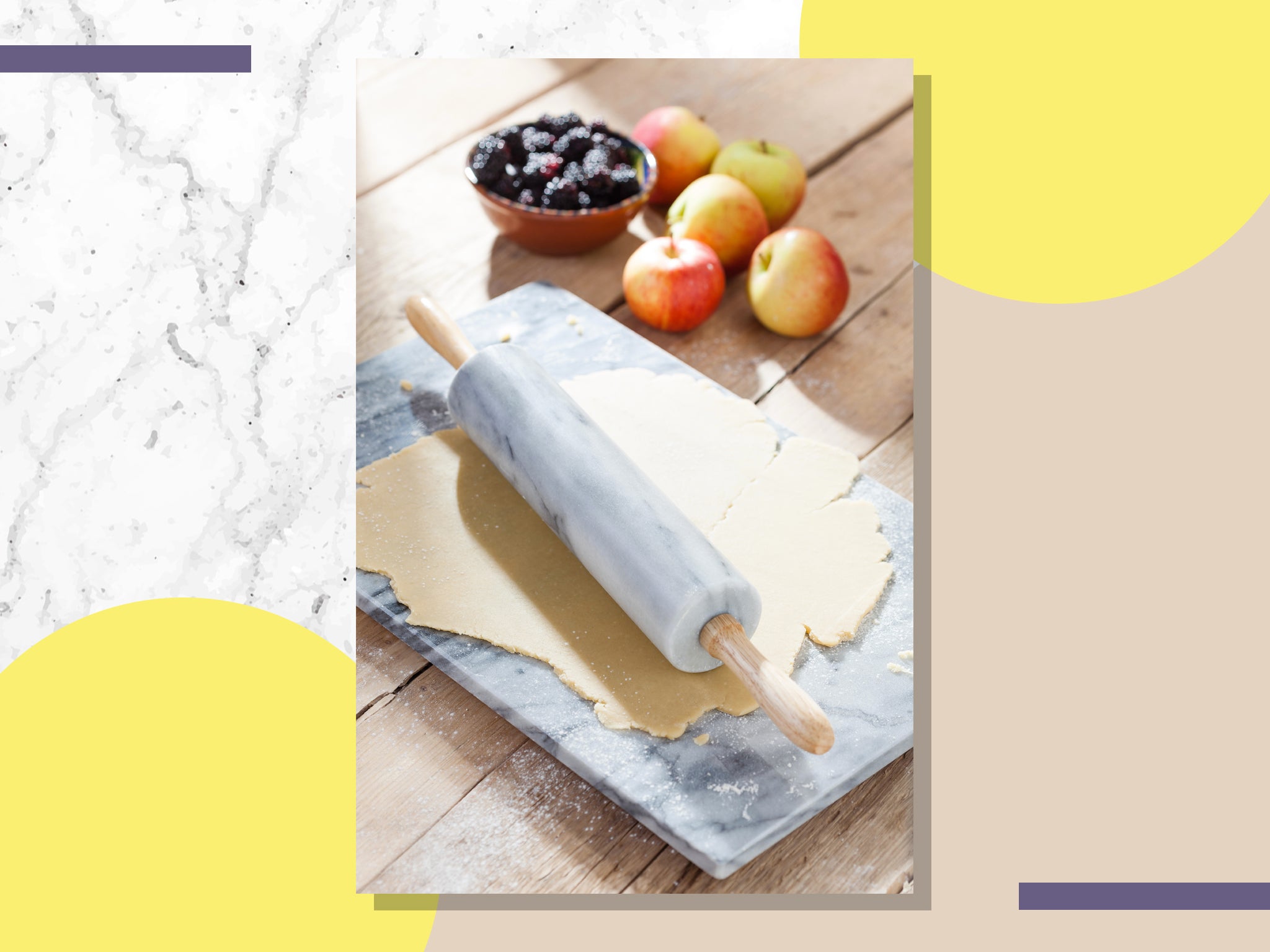
A decent rolling pin is an essential investment for any budding chef or baker, helping you to produce wrinkle-free sheets of pastry with little or no effort.
Most standard rolling pins are cylindrical, which is great if you’re rolling out dough that you’re going to use a pastry cutter on. Some also come with handles – these reduce the surface area of the roller but make it easier to use.
But if you need a bit more manoeuvrability, when you’re rolling out dimsum wrappers for example, a tapered rolling pin is a much better choice.
What you plan to use it for will affect your choice of material too. Marble and stainless steel are great if you want to work with pastry, as these can be chilled to keep the pastry cool when you’re working with it.
But if you tend to work with bread dough, wood is better, as flour sticks to its surface more easily, which stops the dough from sticking.
Read more:
Finally, there’s the matter of weight. A heavier rolling pin generally means you don’t need to put in as much effort, as its weight will do some of the work for you.
But it can also work against you at times – if you’re working with delicate pastry, for example, a heavy pin will be hard to move around and may actually produce uneven results.
With that in mind, we tested a whole selection of rolling pins in different shapes, sizes and materials. We tried all of them on bread dough, and in some cases on marzipan as well, to select our favourites.
You can trust our independent reviews. We may earn commission from some of the retailers, but we never allow this to influence selections, which are formed from real-world testing and expert advice. This revenue helps to fund journalism acrossThe Independent.
Tala for Richard Bertinet French tapered pin, tapered

Tala for Richard Bertinet is a woodware range that’s produced by kitchen brand Tala, with design input from Bertinet, the celebrity baker and pastry chef. This slim French tapered pin is 52cm long and is made from sustainably sourced beech wood from FSC (Forest Stewardship Council) certified forests.
French tapered pins are lighter and easier to maneuver than rolling pins that are cylindrical. The design means you can shape your dough or pastry with ease, and we found this one was a cut above the rest during our testing. Thanks to its slender frame – it’s skinnier than all of the other rolling pins we tried – it was really easy to work with and move around. We were especially impressed by how quickly and effortlessly it flattened dough, despite being so lightweight – most of the others required quite a bit of pressure. But while its length is to its advantage during use, it does make storage an issue – this rolling pin won’t fit into any of our drawers.
Dunelm silicone rolling pin
This bright red rolling pin from Dunelm is made almost entirely of plastic, which makes it super lightweight and ideal if you’re using it with kids. The roller bit in the middle, which is 25cm long, is a plastic cylinder with a silicone sheath on the outside. The handles on either side take the full length of the rolling pin to 46cm, which may not fit into some kitchen drawers.
We found this rolling pin a delight to use. The rolling action of the middle was very smooth and allowed us to glide over the dough with ease, producing nice, even results. The silicone coating made picking up a dusting of flour really easy, which was handy when the dough got sticky. However, the downside of this “stickiness” was that when not in use, the silicone has a habit of picking up dust like a lint roller, which means it needs a good rinse before and after every use.
Judge marble rolling pin
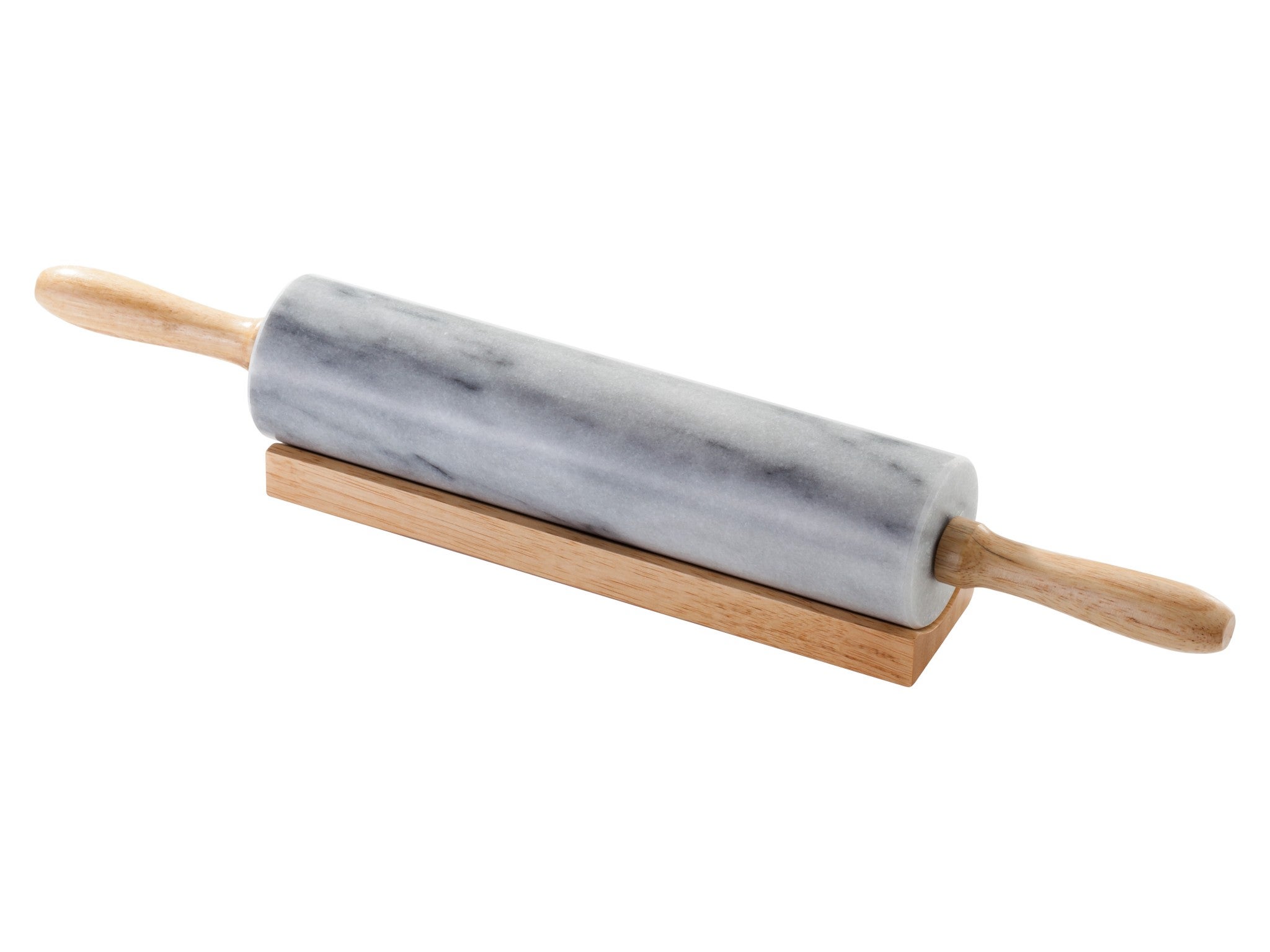
Judge’s marble rolling pin is a heavy duty pin that’s great for working with pastry where you want to keep the surface nice and cool. The roller bit is a thick, 26cm long white marble cylinder, while the wooden handles on either side take it to a total length of 47cm. It’s not a light bit of equipment – the whole thing comes to just over 2kg – so you definitely don’t want to drop it on your feet. To keep it in place when not in use, it also comes with a wooden stand. Plus, this rolling pin comes with a 25 year guarantee.
Our rolling pin was flawless – the same cannot be said for similar ones we tried that aren’t featured here. However, it was really heavy to wield, as you might expect from a marble rolling pin that weighs so much. The rolling action was very smooth though, so once the rolling pin was on the dough, it did a great job of flattening it without much extra effort.
ProCook marble rolling pin and stand
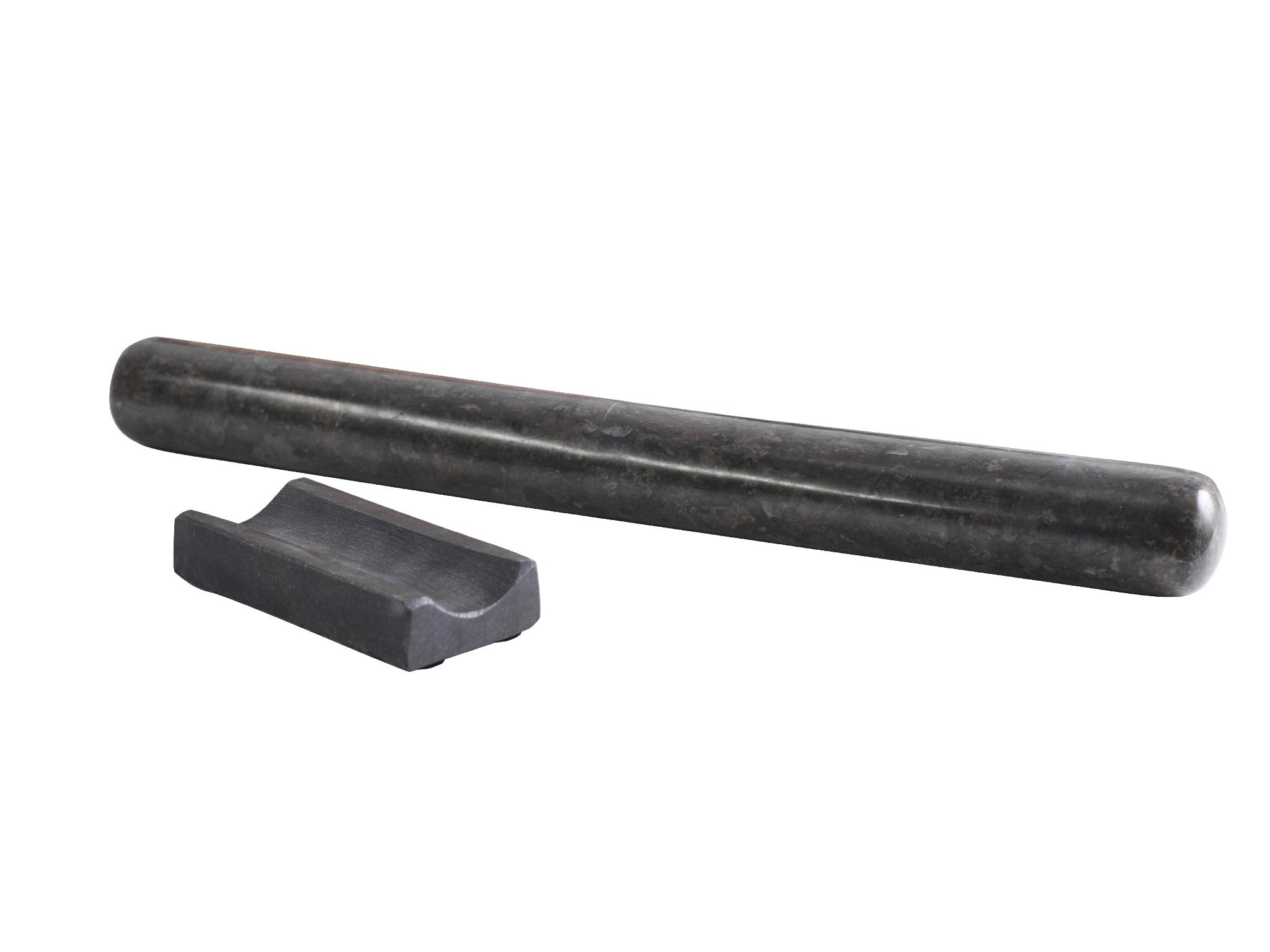
ProCook’s marble rolling pin is a solid cylinder of dark stone that’s 40cm long with rounded ends – the manufacturers have the length down as 38cm, which takes the light tapering into account. It comes with a matching marble stand that can be used to rest the pin when not in use, or for display. ProCook has given this pin a one year guarantee, and unless you drop it, we can’t see why you might need another one at all.
This rolling pin comes in at just over 1.8kg, which while weighing less than theJudge version, isn’t exactly light. However, its solid shape means it’s much easier to pick up and move around than trying to lift up a heavy centre with two handles. During testing, we found this to be a big benefit, especially for those who aren’t as strong. As its full length is quite a bit shorter – without sacrificing any rolling surface – it’s much easier to store as well.
Tala 40cm fondant rolling pin
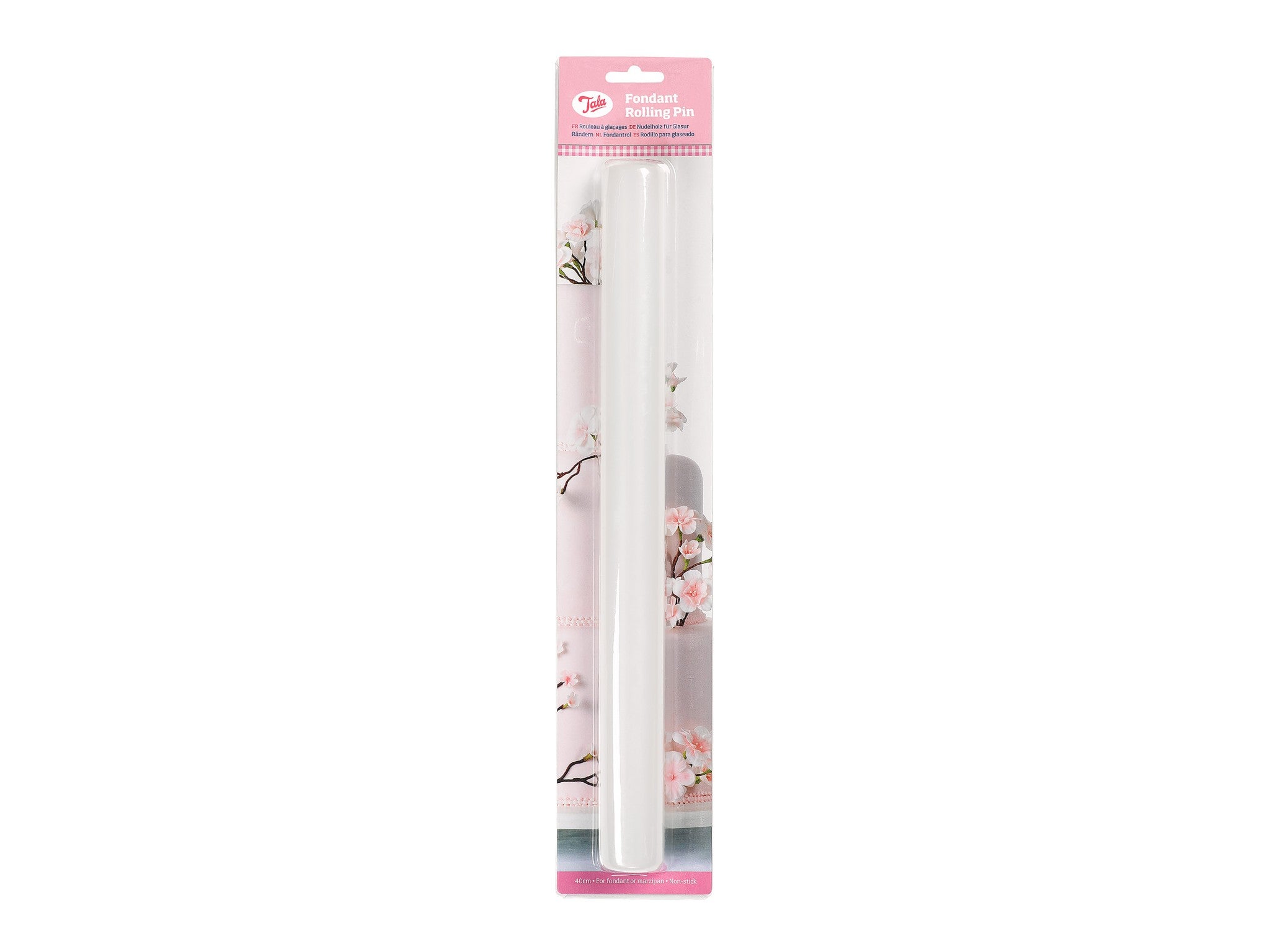
At 40cm, Tala’s fondant rolling pin is long enough to roll out large sheets of fondant icing or marzipan to cover cakes, but still small enough to fit in kitchen drawers. It’s made from a sturdy white plastic, with a non-stick coating that should stop the sugars from sticking to it, while the super smooth surface means it’s easy to clean as well.
We tested this one with both marzipan and dough and found that it did a great job with both. With something like fondant icing or marzipan that’s meant to cover cakes, you want the results to be as flawless as possible, and the smooth surface of this rolling pin helped to achieve that result. Even without a dusting of icing sugar, we found that the non-stick surface worked a treat. However, because it is quite a slim and lightweight rolling pin, we found that we had to apply a bit more pressure when rolling out dough.
Lakeland cooling rolling pin
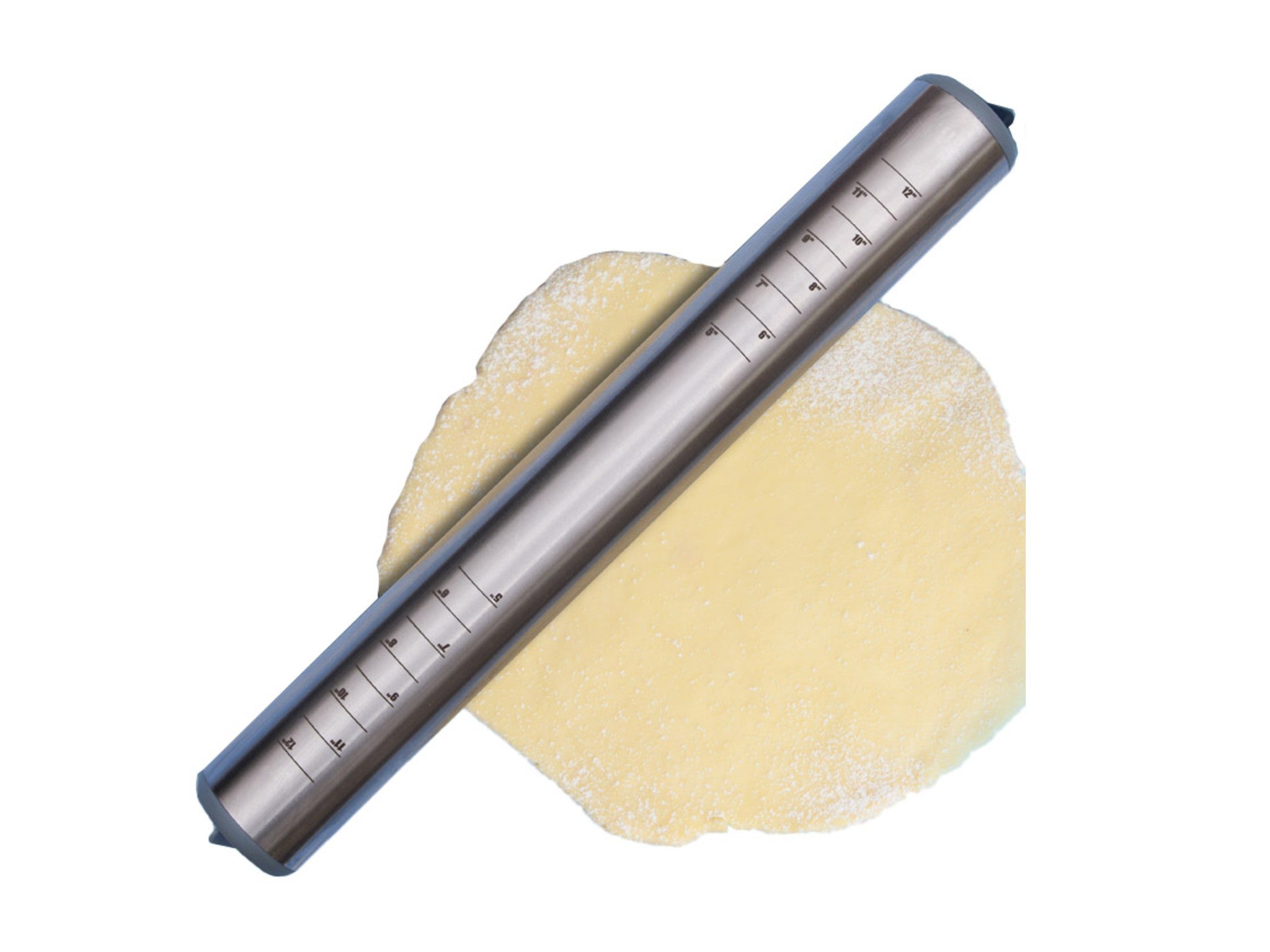
Lakeland’s 40cm cooling rolling pin is ideal for pie makers. It has a cool-to-the-touch stainless steel exterior that can be chilled further by filling the cavity with ice or water from one end of the pin. On the other end there’s another small cavity that you can fill with flour or icing sugar, to dust your surface when you need to. And etched into the surface are markers in inches and centimetres that show you just how wide your pastry is.
We thought it was a great idea to have so many different elements on one rolling pin, but filling the cavities can be a bit fiddly. The water side especially can be quite difficult to get into – a good thing when you want to avoid leaks, but a bad thing when you’re trying to fill or drain it. But as a plain rolling pin, it did a good job of flattening the dough without too much effort.
Cove Calligraphy personalised rolling pin
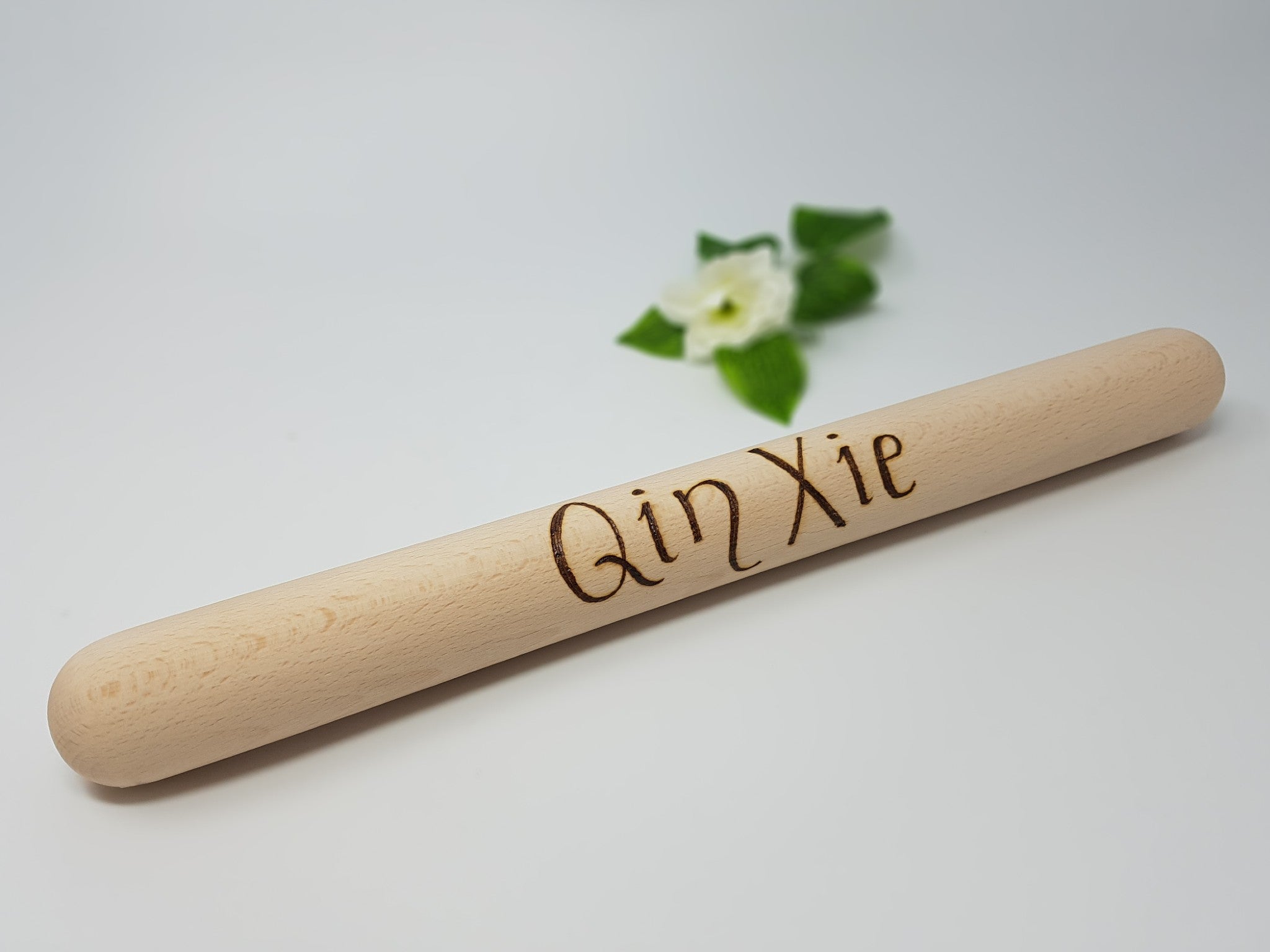
For a fun gift or a reminder of a special occasion, Cove Calligraphy produces personalised rolling pins – your message is burned onto the wood to create a slight indent in a darker colour. You can also pay a little more to get a motif etched onto the wood to go with your message. The beech wood rolling pin itself measures 40cm and is cylindrical with rounded ends.
Novelty aside, the rolling pin is well made and a good size for most baking tasks. We found that it was lightweight and easy to grip onto, which made it efficient to use. Although the personalisation produces a small indent in the wood, during our testing this didn’t transfer onto our dough, and the result was as smooth as the other rolling pins. That said, we think this would be a great one for kids as well, as each can have their own name on it.
Wilko 35cm beech rolling pin
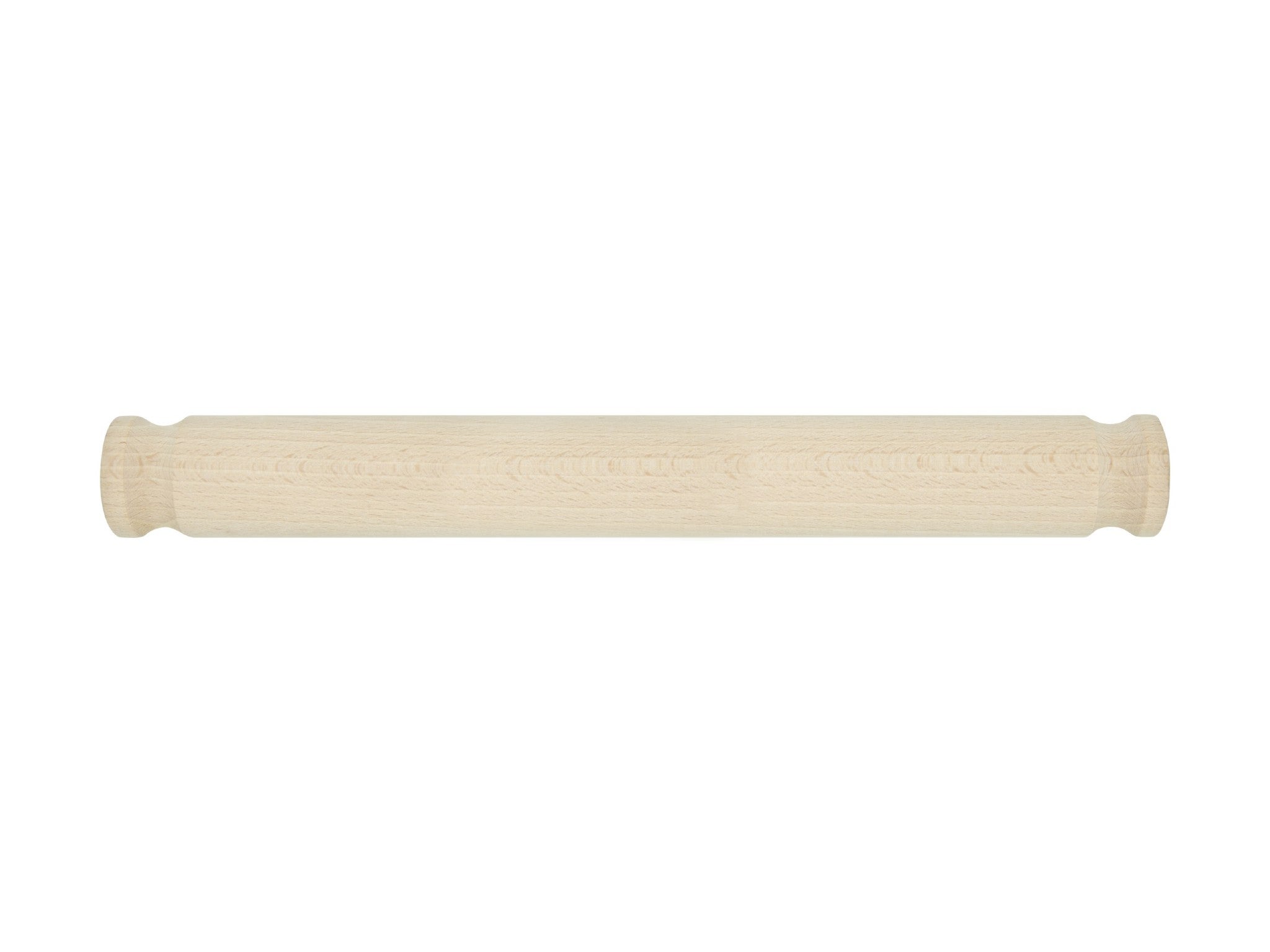
Wilko’s 35cm beech wood rolling pin offers unbeatable value and is by far the cheapest in our line up. It’s also the shortest, and is great if you have a small kitchen and are short on storage space. The rolling pin has a simple design: the body is a cylindrical shape while both ends have a groove cut into them to mark out stunted handles. These handles are more of a decorative feature than anything else though, as they’re too short to actually grip onto.
During testing we actually found that these stunted handles got in the way a bit as you couldn’t comfortably place both hands on the ends. While this didn’t necessarily affect its performance - the result was as good as the other rolling pins – it did mean a bit of extra effort had to go into using it. If you don’t bake much though, this is a great option to have around the home.
The verdict: Rolling pins
The Tala for Richard Bertinet French tapered pin got us fast results with minimum effort, which was hard to beat. However, Wilko offered the best value for money by far. If you regularly work with pastry, opt for ProCook’s marble pins – you can chill it in the fridge or freezer and it’s easy to store.
Voucher codes
For the latest discounts on kitchen tools and other homeware, try the links below:
Get inspired in the kitchen with our best baking books, from the likes of Mary Berry to Yotam Ottolenghi
